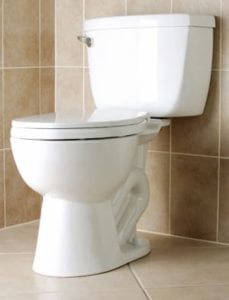
The Minister of Water and Sanitation, Nomvula Mokonyane plans on having 500 flushing toilets installed in Ficksburg, Free State before the end of this year
Corrective Action Requests Report System
The department also launched a second system to help municipalities improve their turnaround times when attending to service delivery complaints. “The Corrective Action Requests Report System (CARRS) is a web-based technology to improve the efficient management of water leaks designed by the Council for Scientific and Industrial Research,” the department said. The CARRS project is currently being piloted in eight district municipalities around the country. These include: Amathole, Capricorn and Vhembe in Limpopo, Ehlanzeni in Mpumalanga, iLembe in KwaZulu-Natal, and Dr Ruth Segomotsi Mompati, Ngaka Modiri Molema and Bojanala Platinum in the North West.Speaking at the launch, Imraan Patel, the department’s deputy director-general for socio-economic innovation partnerships, said the system represented a significant step up on the sanitation ladder from VIP latrines which were associated with poor user experiences.
“What started a pilot study with 20 household toilets has now grown with over 600 of these innovative sanitation systems implemented country-wide,” he said. Patel added that while most South Africans aspired to have a flushing toilet, it was technically challenging to deliver this sanitation technology to all unserved communities. “The cost of constructing such infrastructure is high and there are limited resources, including valuable drinking water, to flush down the pan,” he said. “Through innovative approaches, we are able to simultaneously achieve our national development targets by providing communities with a technology that matches their aspirations while being economically and resource efficient.” Commenting on the significance of the system, WRC executive manager, Jay Bhagwan said: “The pilot testing indicated high-user acceptance, significant water saving compared to full flush toilets and less trash disposal. This is part of the new wave of innovators investigating alternative sanitation methods, bringing renewed attention to an oft neglected service.” Executive mayor of the Amathole District, Nomfusi Winnie Nxawe, welcomed the initiative and said it will improve the lives of people in the area. “We are grateful that we get to put to the test technology and ways in which it can be used to make the lives of our people better,” she said. “As a drought-stricken district, including Amahlathi, all the technology being provided by the national Department of Science and Technology will undoubtedly assist us in providing services for our people amidst challenges we face in water provision.” The launch of these two projects comes a few days before World Toilet Day. World Toilet Day is coordinated by the United Nations in collaboration with governments and relevant stakeholders to raise awareness about thousands of people who still do not have access to proper sanitation around the world, despite the human right to water and sanitation. The UN estimates that over 200 million people in developing countries do not have access to safe drinking water and that 2,5 billion people still cannot access proper sanitation. A large percentage of these remain in Africa.






